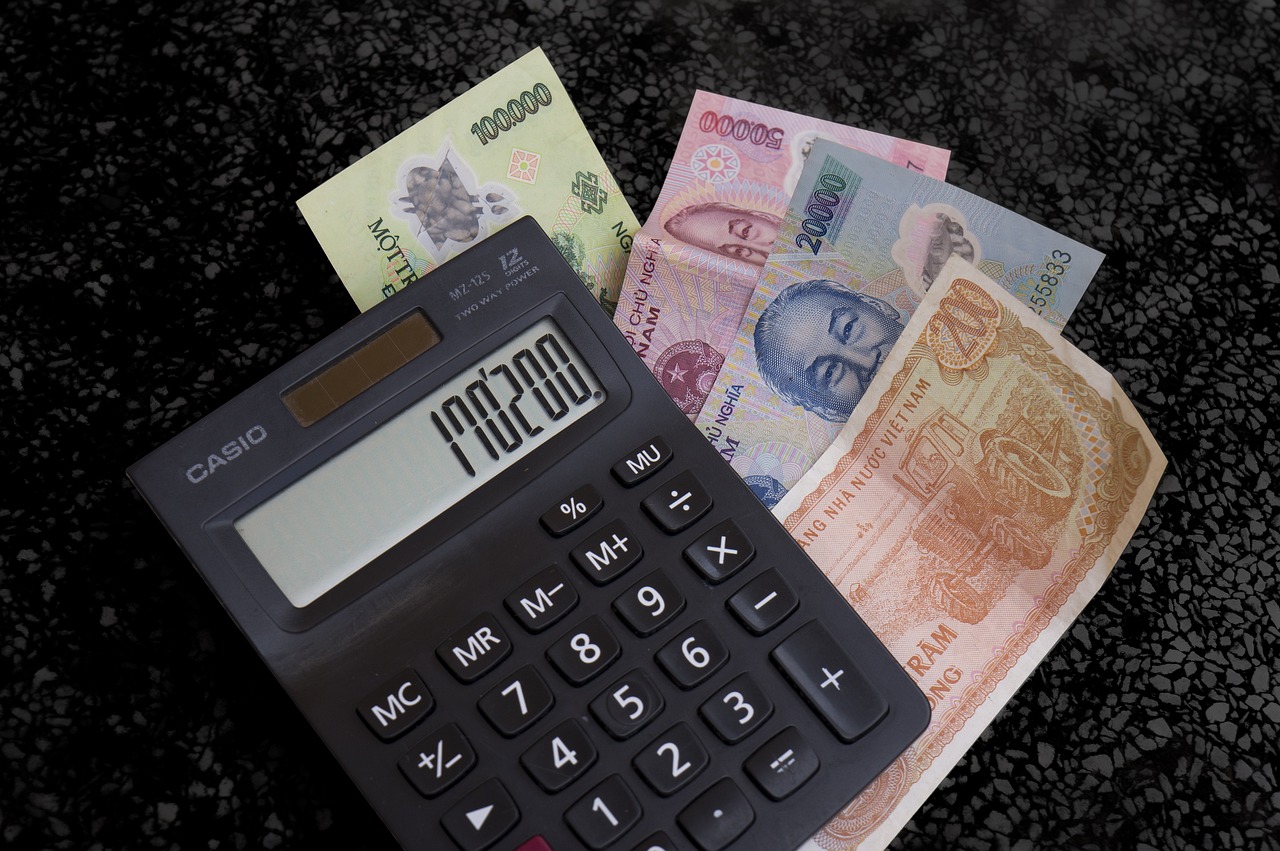Transfer Money to Thailand: Everything You Need to Know for a Safe and Successful Transaction
GPT_Global - 2024-02-07 00:30:03.0 367
Is it safe to transfer money to Thailand?
It is safe to transfer money to Thailand, as long as you follow certain precautions. First and foremost, make sure you only use reputable remittance services that have a track record of secure transactions. Be wary of unsolicited emails or messages requesting you to transfer money, as they could be fraudulent attempts to steal your personal information.
When transferring money to Thailand, always provide accurate and complete information to avoid any delays or errors. Double check the recipient's details, including their full name and bank account number. It is also recommended to use a secure website or app when making the transfer, and avoid using public Wi-Fi or shared devices.
In addition, keep in mind that there may be fees involved when sending money to Thailand. It is important to research and compare different remittance services to find the most affordable option for your needs. Some services may charge higher fees but offer faster delivery times, while others may have lower fees but take longer to process the transfer.
Another tip is to consider using a currency exchange specialist to convert your money into Thai baht before sending it. This can potentially save you money, as banks and other remittance services often charge higher exchange rates.
Lastly, always keep track of your transaction by saving any confirmation numbers or receipts. In case there are any issues with the transfer, having this information readily available will make it easier to resolve any problems.
Overall, transferring money to Thailand can be done safely and securely as long as you take precautionary measures and use reputable remittance services. By following these tips, you can ensure that your money reaches its intended recipient in a timely and secure manner.

What currency should I use when sending money to Thailand?
When sending money to Thailand, it is important to consider which currency to use for the transaction. As a popular tourist destination and emerging economy, Thailand has multiple options for currency exchange, making it essential to select the most suitable currency for your remittance needs.
The official currency of Thailand is the Thai baht (THB), and it is widely accepted across the country for daily transactions. However, for international remittances, using a major currency such as the US dollar or the Euro may provide better exchange rates and lower fees.
If you are sending money from a country where the Thai baht is not easily accessible, it is recommended to convert your local currency to USD or EUR before initiating the transfer. This can save you from additional conversion fees and ensure that the recipient receives the full amount without any deductions.
Another important factor to consider is the recipient's preferred currency. If they have a bank account in a different currency, it may be more convenient for them to receive the money in their local currency. In this case, using a remittance service that offers multiple payout options and competitive exchange rates would be beneficial.
Additionally, if you are regularly sending money to Thailand, it may be helpful to explore remittance companies that offer locked-in exchange rates for future transfers. This provides a more stable transfer experience, especially if you are transferring large amounts of money.
In conclusion, when sending money to Thailand, it is essential to consider the fees, exchange rates, and convenience for both the sender and the recipient. By understanding the different currency options and selecting the most suitable one, you can ensure a seamless and cost-effective remittance experience.
Are there any limits on how much money I can transfer to Thailand?
When it comes to transferring money to Thailand, there are certain limits that must be considered. These limits vary depending on the method chosen for remittance.
The first limit to keep in mind is the maximum amount allowed for a single transfer. For most remittance methods, this limit ranges between $50,000-$100,000 USD. It's important to note that exceeding this limit may result in the transaction being rejected or delayed.
Another limit to consider is the total amount of money that can be transferred within a specific time period. This limit also varies depending on the remittance method, but it's usually around $200,000-$300,000 USD per year.
Furthermore, there may be restrictions on the purpose of the transfer. Certain transactions, such as those involving large sums of money or government-related payments, may require additional documentation and approvals.
Lastly, it's important to be aware of any fees associated with transferring money to Thailand. These fees can add up, especially when transferring large amounts of money. It's recommended to compare fees among different remittance providers to find the best deal.
In conclusion, while there are limits on how much money can be transferred to Thailand, they are in place to ensure the safety and legality of transactions. By staying within these limits and choosing a reputable remittance provider, sending money to Thailand can be a smooth and hassle-free process.
Can I track my money transfer to Thailand?
Tracking your money transfer to Thailand is an essential part of sending funds abroad. It gives you peace of mind and helps you ensure that your money reaches its intended destination on time. Thankfully, with the advent of technology, tracking your remittances has become easier and more convenient.
Most remittance companies offer online tracking services, where you can simply enter your transaction reference number or tracking code to get real-time updates on the status of your transfer. This feature allows you to know exactly where your money is in the transfer process and when it will be available for pickup by your recipient in Thailand.
Some remittance providers also offer SMS or email notifications for tracking purposes. This means you will receive instant updates about your transfer via text or email, making it easier for you to stay informed without having to constantly check the remittance company's website.
It's crucial to choose a trusted and reliable remittance service provider to ensure the accuracy and security of your tracking information. Make sure to do your research and read reviews before sending your hard-earned money to Thailand.
In addition to tracking your money transfer, you should also familiarize yourself with the fees, exchange rates, and delivery options provided by different remittance companies. This will help you compare and choose the service that offers the most value for your money.
With the above information in mind, you can now confidently send your money to Thailand and stay updated on its journey until it reaches your loved ones. Make use of the various tracking features offered by remittance providers and remember to always prioritize safety and reliability when choosing a remittance service.
What information do I need to provide for a successful money transfer to Thailand?
Sending money to Thailand can be a convenient and effective way to support your loved ones or conduct business in the country. However, it is important to provide certain information for a successful transfer. Here are the key pieces of information you need when sending money to Thailand:
1. Receiver's name and address: In order for the money to reach its intended recipient, you will need to provide their full name and accurate mailing address.
2. Bank account details: If the receiver has a bank account in Thailand, you will need to provide the bank name, branch location, and account number. This will ensure that the funds are directly deposited into their account.
3. Identification documents: Depending on the amount being transferred, you may be required to provide a copy of the receiver's identification document, such as a passport or ID card. This is to comply with anti-money laundering regulations.
4. Purpose of transfer: It is important to specify the reason for the transfer, such as family support, business transaction, or education expenses. This can help avoid any issues or delays with the transfer.
5. Transfer amount and currency: You will need to provide the amount you wish to send and the currency in which it should be received. Keep in mind that some currencies may have different exchange rates and fees associated with them.
6. Transfer fees: Make sure to clarify who will be responsible for the fees associated with the transfer. Some remittance services charge a flat fee, while others may have a percentage-based fee.
7. Desired speed of transfer: Depending on the urgency of the transfer, you can choose between a standard or expedited delivery time. Keep in mind that the faster the transfer, the higher the fees may be.
8. Contact information: Lastly, provide your own contact information so that the remittance service can reach you in case of any issues or questions regarding the transfer.
By providing all of the above information accurately, you can ensure a smooth and successful money transfer to Thailand. It is also important to double-check all details before finalizing the transfer to avoid any delays or errors. With these essential pieces of information, your loved ones or business partners in Thailand can receive the funds they need with ease.
About Panda Remit
Panda Remit is committed to providing global users with more convenient, safe, reliable, and affordable online cross-border remittance services。
International remittance services from more than 30 countries/regions around the world are now available: including Japan, Hong Kong, Europe, the United States, Australia, and other markets, and are recognized and trusted by millions of users around the world.
Visit Panda Remit Official Website or Download PandaRemit App, to learn more about remittance info.



